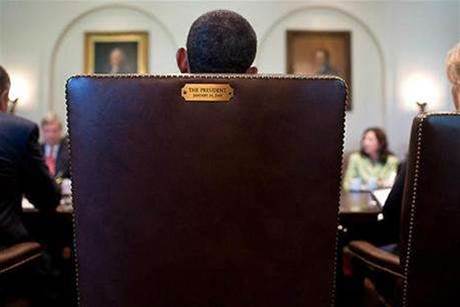President Barack Obama is expected to announce an executive order directing government agencies and companies to share more information about cybersecurity threats in response to spate of high profile attacks.

As in other policy areas where Obama has been unable to get legislation through the now Republican-controlled Congress, the White House is turning to more limited administrative actions to advance its agenda.
The announcement could be tonight or tomorrow US time, when the president is due to speak at a day-long conference on cybersecurity at Stanford University in the heart of Silicon Valley, according to three participants in the conference.
The move comes as big Silicon Valley companies prove hesitant to fully support mandatory cybersecurity information sharing without reforms to government surveillance practices exposed by former National Security Agency contractor Edward Snowden.
A new government center for cybersecurity, announced earlier this week by Obama's top homeland security advisor, could play a key role in the process. But the Stanford attendees said they did not have details.
The White House declined to comment.
Cybersecurity industry veterans said Obama's anticipated order would be only a modest step towards one of the president's major priorities - the defence of companies from attacks like those on Sony and Anthem.
Administration officials have said they would prefer legislation that would require more information sharing and limit any legal liability for companies that share too much. They have said that an executive order could not limit liability.
But getting anything through to Congress on the subject has proven a daunting task, and one that appears unlikely to become easier without at least the support of big Silicon Valley companies such as Google and Facebook.
Those companies, however, have refused to give public support to cybersecurity bills without some reform of surveillance practices exposed by Snowden that have hurt US technology companies' efforts to win business in other countries.
No grand bargain between the administration and the Valley companies has been reached, according to Nuala O'Connor, president of the technology lobbying group Centre for Democracy and Technology.
For that reason, and the fact they have not seen the text of the planned executive order, top companies Google, Facebook and Yahoo are not sending their chief executives to the Stanford conference, a technology executive at a major bank said. Apple boss Tim Cook is one of the few household names speaking, and that company declined to comment.
In a private meeting with Obama on Friday, however, some of the leading executives are expected to press again for surveillance reform and support for strong encryption, which some in the administration have faulted recently on the grounds that it enables criminals and terrorists to hide their activity.
Big technology companies and a host of startups have been beefing up encryption in Snowden's wake to make blanket intelligence collection overseas more difficult.


_(20).jpg&h=140&w=231&c=1&s=0)

_(33).jpg&h=140&w=231&c=1&s=0)






 Cyber Resilience Summit
Cyber Resilience Summit
 iTnews Executive Retreat - Security Leaders Edition
iTnews Executive Retreat - Security Leaders Edition
 Huntress + Eftsure Virtual Event -Fighting A New Frontier of Cyber-Fraud: How Leaders Can Work Together
Huntress + Eftsure Virtual Event -Fighting A New Frontier of Cyber-Fraud: How Leaders Can Work Together
 iTnews Cloud Covered Breakfast Summit
iTnews Cloud Covered Breakfast Summit
 Melbourne Cloud & Datacenter Convention 2026
Melbourne Cloud & Datacenter Convention 2026












_(1).jpg&h=140&w=231&c=1&s=0)



